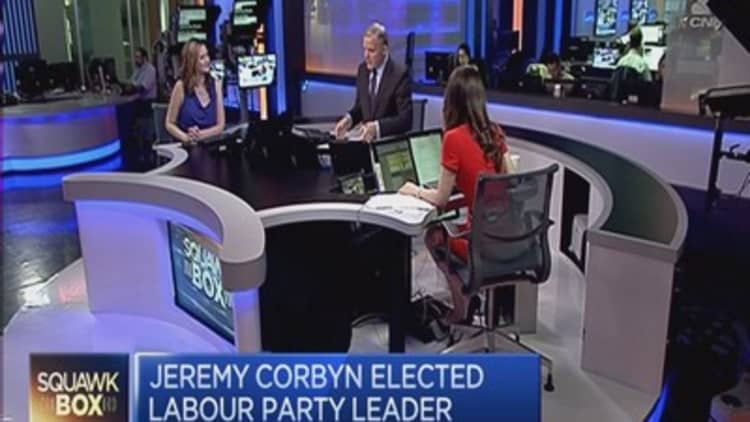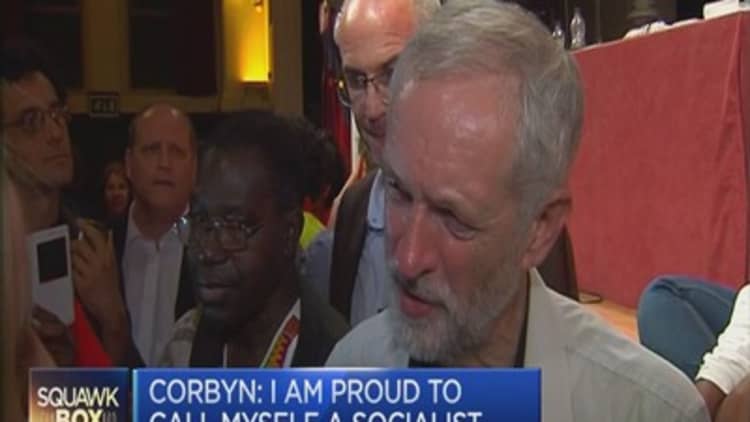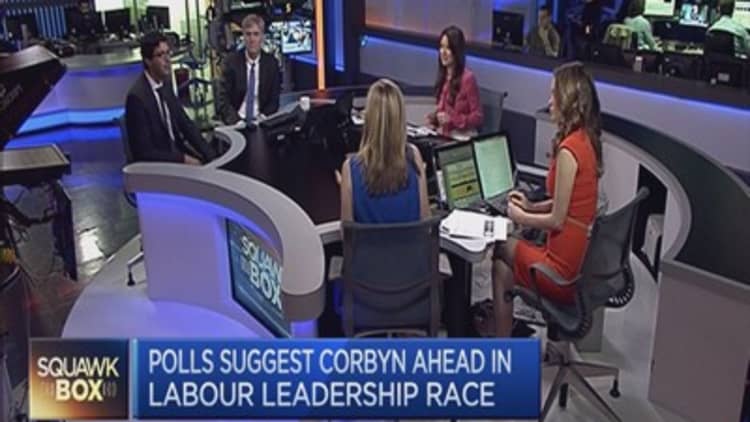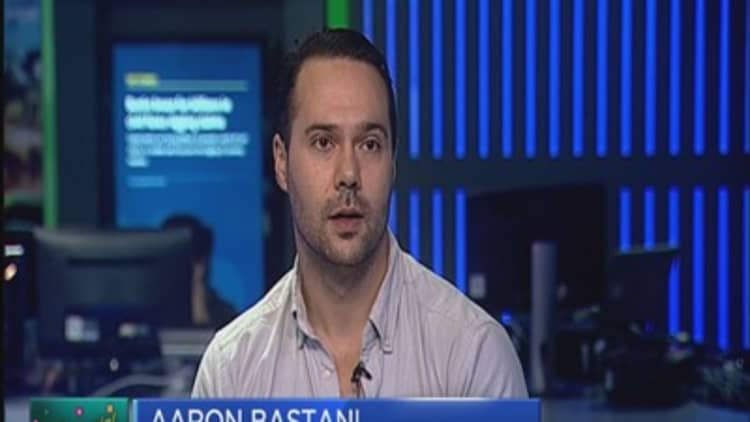



After the U.K.'s Labour party elected Jeremy Corbyn, its most far-left leader for decades, one of the highest profile international figures to congratulate him was none other than Bernie Sanders, the U.S. presidential candidate whose politics are often likened to those of Corbyn.
Sanders, who is running against the Democrats' Hilary Clinton, told The Huffington Post online newspaper: "At a time of mass income and wealth inequality throughout the world, I am delighted to see that the British Labour Party has elected Jeremy Corbyn as its new leader."
"We need leadership in every country in the world which tells the billionaire class that they cannot have it all. We need economies that work for working families, not just the people on top," he added.
The rising popularity of Sanders in the U.S. and Corbyn in the U.K.—individuals who have spent at least a generation on the fringes of their country's politics—are part of an increased frustration with the status quo in the Western world. Today's political disruptors in the West seem to be, in the main, old white men, although they are often figureheads for more diverse movements.
Corbyn's victory was dubbed "a further manifestation of anti-establishment sentiment across Western democracies and the party's own internal divisions," by Alastair Newton, co-founder and director of Alavan Business Advisory.
The consternation over Corbyn's appointment of only men to the top five jobs in his opposition Cabinet demonstrated one of the faultlines that may end up dividing the left. In particular, lifetime left-wing awkward squad member, John McDonnell, getting the job of opposition Chancellor of the Exchequer (finance minister) proved divisive within moments of the announcement.
McDonnell, one of the key campaigners for Corbyn, not only beat an up- and-coming, more moderate female politician, Angela Eagle, but also espouses a number of policies that are likely to alienate big business in general and the U.K.'s large financial services sector in particular. He is very close to the country's trade unions, thinks that the Bank of England's control over setting interest rates should be removed and has been one of the most prominent critics of bankers' pay.
Corbyn's economics policies (which are somewhere to the left of those of Sanders) include the renationalization of some U.K. industries, the Keynesian economic stimulus he calls "people's quantitative easing (QE)" and a clampdown on tax evasion and avoidance.
Renationalization and the threat to Bank of England independence posed by "people's QE" seem to be causing most worries among economists at the moment.
"The concern will be that his plans to increase spending not only reverse the improvement in public finances in recent years, but could potentially lead to higher inflation as well," Liz Martins, an economist at HSBC, said in a research note Monday.
Beyond that, there are also concerns that Corbyn's instalment may make a U.K. exit from the European Union by the end of 2017 more likely. Corbyn has strong ties to the union movement, which has been particularly skeptical of some aspects of EU membership.
High-profile members of the Labour Party already appear divided over whether Corbyn will commit to campaigning to keep the U.K. in the EU or not, with ex-opposition Business Secretary Chuka Umunna and opposition Foreign Secretary Hilary Benn saying different things on Monday morning.
"Markets should not, in my view, dismiss Mr Corbyn, as his victory could complicate securing a vote to stay in the EU and increase pressure from Scotland for a second independence referendum," Newton said.
- By CNBC's Catherine Boyle




